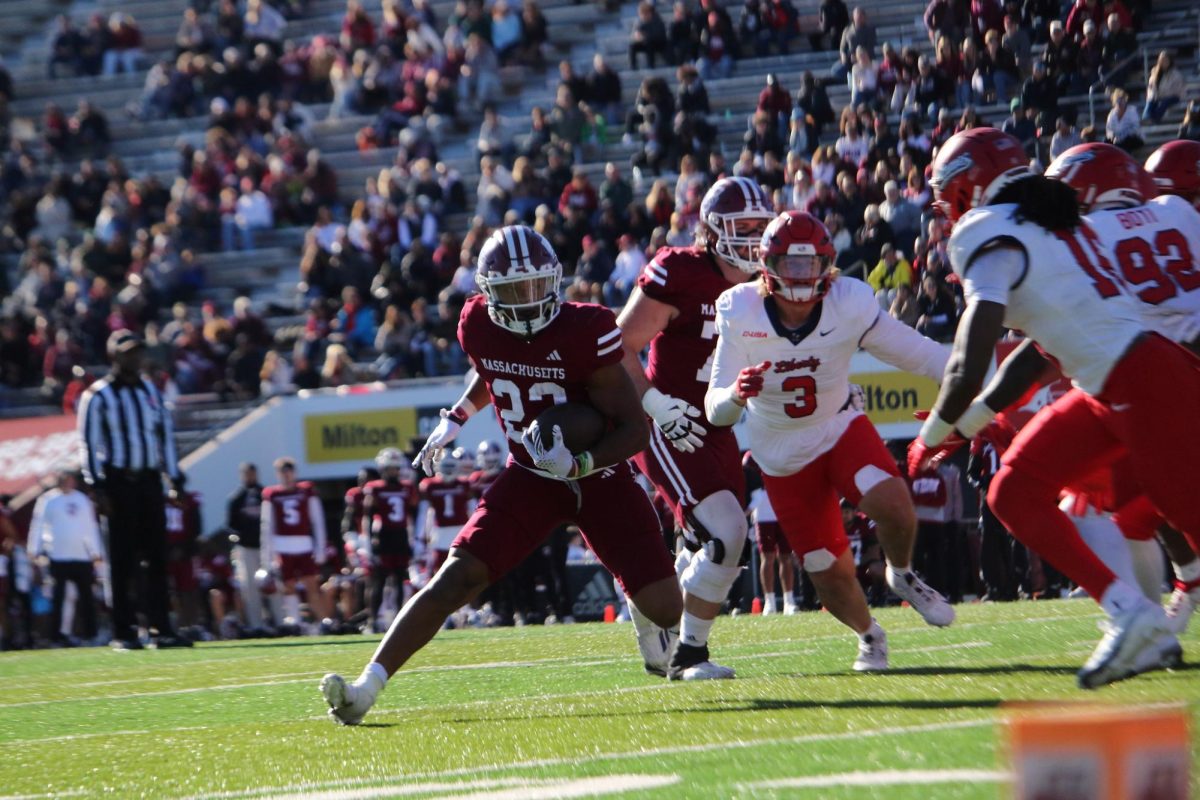
I was walking by the Integrative Learning Center the other day, in one of those January moments where I was in between warm places and would do just about anything to get where I was going. “Wouldn’t it be nice if I could teleport to the bus stop?” I thought to myself. “Wouldn’t it be nice if we could all?”
I do recognize that that wish gives me away as a member of a non-teleporting generation, because if teleportation really did exist there wouldn’t be any bus stops, as there wouldn’t be any buses at all.
I realized that, and consequently began to think about how sad that would be – a world without buses. Not getting to wave at the campus shuttle drivers – individuals that are also my classmates – and not getting stared down by the B43 drivers as I point to my University of Massachusetts sweatshirt to prove I’m a student because I don’t have my ID card. Those little moments would be gone.
More importantly though, a lot of bus driving jobs would be gone. The Pioneer Valley Transit Authority alone employs many people, and they’d all be out of work. That can’t be a good thing.
But also, those people could teleport too so, what do we do?
The “pro-teleportation” side of this argument is for the idealist – the trailblazer, the tycoon, the moon-shooter. It’s the type of American we all want to be – the 10-feet-tall storybook version of Andrew Carnegie, industrious and immortal. It’s not hard to argue for innovation, because it’s always been an undeniably “good” part of American rhetoric. We study inventors in elementary school and raise them up to the highest echelons of American folk hero-dom. They moved us forward, advanced the species and in short, made our lives better. What could be wrong with that?
The first argument against innovation is the one I’ve already mentioned: invention of one thing tends to makes another obsolete, with the latter fact usually meaning that with invention comes human suffering. Bus drivers, pilots and cabbies would all be out of work, and they’re not the only victims. Other traditional casualties of invention are the laborers. Innovation in the Anthropocene is built on the backs of oppressed people.
Teleportation feeling political yet? In the 21st century we can be rest assured that robots always screw on our toothpaste caps perfectly tight (if the tragic opening vignette of “Charlie and the Chocolate Factory” is to be believed) but is it really worth it?
Think of Mr. Bucket. Donald Trump did.
Trump wasn’t the first candidate for whom “let’s get those jobs back” stump speeches led to victory, but he was unprecedented in many other ways. In the wake of his surprising election, explanations were owed; a mythology was crafted in the pundit-verse, one of a forgotten class of white middle Americans, blue collar workers angered that their livelihoods were taken away by the innovative technologies of the coastal elite. Now, I say mythology not because this demographic doesn’t exist, but the degree to which their economic insecurity affected their vote is contested. That being said, Clinton’s surprising losses in rust belt states which often go blue gives legs to this narrative.
In his acceptance speech, Trump’s promise that “The forgotten men and women of our country will be forgotten no longer” was met with thunderous applause.
So would teleportation – and its innovation – be good for our country, even if it leaves forgotten American bodies in its wake?
The now infamous “coastal bias” most of us here at UMass tend to harbor would probably lead us to say yes. Yes, people get hurt in the process, but progress is the only way. As Americans, we even go so far as to think that innovation and progress are inevitable – which just isn’t true.
It is true that this always has always been the American way, but it doesn’t have to be. A post-teleportation American government could tax all the teleporters out of the country and put everyone back to work as a bus driver. We wouldn’t be able to teleport, but we also wouldn’t starve.
We have to decide if we would want that as a county. Everything from our government to our climate is asking us right now.
Is it still worth it to think for ourselves and our posterity, to fight for progress and diversity and justice, or would it be enough to just be happy, here and now, on a warm planet with a full belly and a job?
It’s a hard question to answer as someone who has never been on the losing end of an innovation boom. Make friends with a bus driver, maybe you can call and ask them when it’s time.
Becky Wandel is a Collegian columnist and can be reached at [email protected].

















